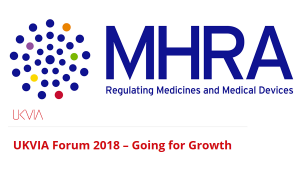 So-called “short-fill” products have not caused a reduction in the number of nicotine-containing e-liquids being notified in the UK, according to an expert from the agency in charge.
So-called “short-fill” products have not caused a reduction in the number of nicotine-containing e-liquids being notified in the UK, according to an expert from the agency in charge.
In fact, the number of notifications for e-liquids in 2017-2018 is higher than the agency predicted, according to Craig Copland, e-cigarette unit manager at the Medicines and Healthcare Products Regulatory Agency (MHRA), which is responsible for EU Tobacco Products Directive (TPD) notifications in the UK.
This would imply that companies are continuing to notify new e-liquid products at a high rate rather than creating new lines solely in short-fill, or shake and vape, form – where a nicotine-free flavoured e-liquid is sold in a bottle slightly larger than required alongside a separate nicotine shot that meets TPD requirements.
The MHRA has continued to allocate resources as required to meet the growing demand. From 2016 the agency has increased staffing in order to process the notifications.
“We are working to ensure resources have been allocated according to need of the notifications received,” Copland explained.
The agency is not planning at present to raise notification fees to cover the increasing workload, though future changes to fees have not been ruled out.
“We will not be issuing requests for payment of the annual fee for 2018/19. MHRA will not charge producers the annual fee of £60 due for each notification or the substantial modification fee in 2018/19,” the agency said. “In effect this means that the single £150 notification fee will cover both the initial processing, publishing and checking for completeness of a new notification and also the ongoing costs of updating notifications and safety surveillance through the Yellow Card scheme for 2017/19.”
Vape industry conference
Despite concerns in parts of the industry over short-fills being used as a workaround to avoid safety regulations, the MHRA is not planning to take on the regulation of e-cigarette products that do not contain nicotine and are not considered a medical device. This includes e-liquids that contain CBD, the agency said.
Instead CBD e-liquids will continue to be included under the General Product Safety Regulations 2005 (GPSR).The MHRA has taken the view that a voluntary system operated via the EU Common Entry Gateway (CEG) portal, a tool for reporting and notifying, is not supported by the current regulations.
Producers should consider the use of published industry and trade body standards, and working closely with specialist compliance companies or trading standards partnerships to meet the requirements of the GPSR. The agency accepts adverse reaction reports for zero-nicotine liquids via the Yellow Card scheme and passes them on to the relevant local authority.
“Where companies do not regard their products to be medicines, it is their responsibility to ensure that the products are marketed in accordance with the relevant legislation,” Copland said.
“The Local Trading Standards or Food Standards Agency can advise on the relevant aspects of legislation as it applies to general products, foods and food supplements and the Home Office can advise on psychoactive substances and the misuse of drug legislation.”
Copland will discuss the MHRA’s e-cigarette activities in detail at the upcoming UK Vape Industry Association (UKVIA) conference in London on 23rd April. ECigIntelligence is a media partner of the event.
– Freddie Dawson ECigIntelligence staff






